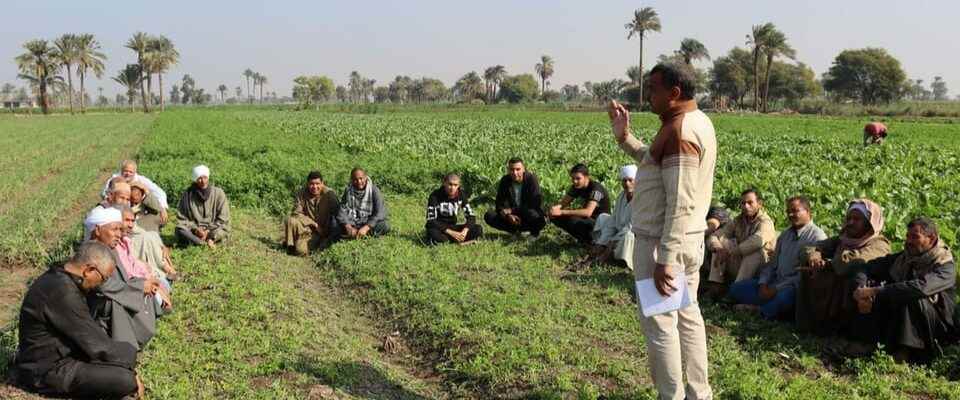contents
Climate change is forcing Egypt’s farmers to rethink. Water and money are scarce. Visit to a garlic cooperative.
A good two dozen men of different ages, all farmers, are sitting in a semicircle in the middle of a field. It is the garlic demonstration field set up by the German Society for International Cooperation (GIZ) in the municipality of Quai, around 150 kilometers south of the capital Cairo.
The instructor explains to the farmers how to prepare their land before planting and what organic fertilizers are available. But also that they should put geraniums between the garlic plants so that the water and fertilizer can last longer.
Legend:
Garlic farmers learn about new planting and irrigation methods at a field school in Quai, Egypt, about 150 kilometers south of Cairo.
SRF/Klaus Ammann
Egypt is one of the top ten garlic exporters. Its cultivation has a tradition going back thousands of years. But the traditional methods no longer work. Sudden heavy rains in the summer and significantly higher temperatures throughout the year caused problems for the vegetables, says one of the farmers.
The change in the mind
GIZ project manager Waleed Ramadan states that the farmers also have to react mentally to climate change. That’s why his organization relies on such demonstration fields: “In this way, the farmers can compare the plantings one-to-one with their own.”
Egypt has been suffering from water shortages for years. The population only has half as much water per capita as the UN actually defined as the minimum. Meanwhile, the population is growing rapidly. The water level of the Nile, which supplies most of the water, is falling due to climate change. But also because the neighboring country to the south, Ethiopia, is filling a new reservoir in the upper reaches of the river.
There is no money for investments
The garlic farmers in Quai could easily get by with about a quarter less water, explains Waleed Ramadan. By not watering in the middle of the day, as this increases heat stress on the plants and the water evaporates quickly. Even more water could be saved with drip irrigation systems on the fields. But the cooperative lacks the money for this.
Assem Mohammed emphasizes that projects like the one in Quai must also offer farmers economic prospects in order to be sustainable. The economist conducts research at the Central Laboratory for Climate in Agriculture in Giza near Cairo.
Meager income – no minimum price
The vast majority of Egyptian farmers sold their products exclusively to dealers at very low prices. A farmer earns the equivalent of around 40 Swiss francs a month, four times less than a taxi driver.
According to Assem Mohammed, there are no state-guaranteed minimum prices in Egypt. As long as this remains the case, farmers can only increase their income if they negotiate directly with buyers at home and above all abroad.
GIZ project manager Waleed Mohammed is also aware of this. The problem of market access is also addressed in the project with the farmers’ cooperative.
